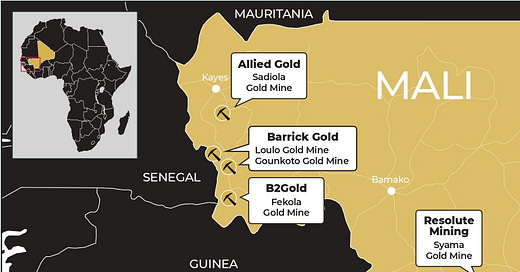Mali Seizes 3 Tons of Gold from Barrick Amid Ownership Dispute
Note: Events like the following could become more frequent in other nations. These are the equivalent of mining strikes in the short term, and manifest as an increased cost of production in the long term for gold miners.
Mining strikes in the 1970s, particularly in South Africa contributed …



